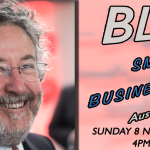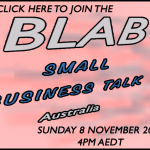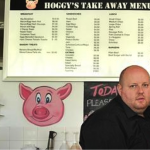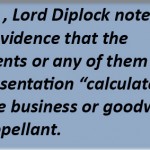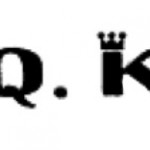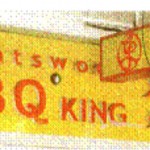Trademarks, Logos, Names & Marketing a Brand
Highlighting corporate trademarks, logos, names and marketing branding, the recent dispute between a NSW Central Coast takeaway café and the national franchise Hog’s Breath Café chain has again shone a light.
![Importance of a trademark]()
Source: Daily Telegraph New Limited http://www.dailytelegraph.com.au/newslocal/inner-west/hoggys-takeaway-in-gosford-hopes-facebook-campaign-will-end-naming-rights-dispute-with-hogs-breath-cafe/story-fngr8h4f-1226888133765
Sam and Sarah Hogg opened a takeaway around February 2014, in Gosford. Having the name Hogg they not surprisingly came up with the name “HOGGY’s” with a caricature of pig’s head.
Seven weeks after opening, in April 2014, Sam and Sarah received a cease and desist demand from Hog’s Breath Café demanding they stop using the name on the grounds it infringed the trademark of Hog’s Breath Café and was misleading and deceptive.
The news from the Daily Telegraph newspaper and radio 2GB report that Sam and Sarah have agreed to change the name as the cost of attempting to resist the challenge is far too expensive for them to take on.
The Courts View
The situation is not novel. It has arisen at least twice in the recent past. The costs of meeting the challenge in those instances was either not beyond the parties or was to them, worth the expense.
The two decided cases were Taco Bell Pty Ltd & Anor v Taco Co of Australia Inc & Ors [1982] FCA 170 (23 August 1982) (Franki J.Deane J.Fitzgerald J.) and Anakin Pty Ltd v Chatswood BBQ King Pty Ltd [2008] FCA 1467 (30 September 2008) (BRANSON J)
The facts of each case are as follows:
Taco Bell
An Australian business had traded in Sydney since the 1970s, in two locations under the name of Taco Bell Casa (Taco Co of Australia), selling Mexican style food.
Taco Bell Pty Ltd and Taco Bell Inc were US based franchise organizations that commenced trading in Australia in 1981 also selling Mexican style food.
The US based Taco Bell organizations relied upon s.52 of the Trade Practices Act, 1974 (Cth) (“Trade Practices Act”) (now s.18 of the Australian Consumer Law but in similar terms), and sought, amongst other orders, that Taco Co of Australia cease using the name “Taco Bell Pty. Ltd.” or any name deceptively similar to the name “Taco Bell” in operating its Mexican food restaurants in Australia (albeit only in two Sydney locations).
At the time of making their claims seeking orders against the Australian operators, the American Franchisors had:
- not carried on business in Australia;
- not used the mark “Taco Bell”;
- not used the name “Taco Bell”
in relation to restaurants or goods or services supplied in any restaurants in the Sydney metropolitan area.
Whilst the Courts accepted that a number of people in the relevant area knew of restaurants operated in America by the American Franchisors, the Court acknowledged there was absolutely no evidence that Taco Bell (USA Franchisors) had sold in the area “a class of goods to which the particular trade name applies” (paraphrased judgment)
![Lord Diplock decision Taco Bell]() The plain fact was that the American Franchisors did not at the time of making their claim have any relevant goodwill or business in the Sydney metropolitan area.
The plain fact was that the American Franchisors did not at the time of making their claim have any relevant goodwill or business in the Sydney metropolitan area.
In the initial judgment, the Australian operators were able to continue trading as they always had. The US Franchisors appealed the decision, and on appeal the Australian operators sought and obtained, amongst other orders that, the US Franchisors in all its guises, be restrained from operating any restaurants in the Sydney metropolitan area under the name “Taco Bell” or under any name similar which is deceptive or misleading or which is likely to deceive or mislead.
The case was decided on the facts that the Australian operators had established business years before the American Franchisors tried to commence operations in Australia and as such the goodwill and reputation of the name “Taco Bell”, at least in the Sydney metropolitan area was connected with the Australian operators, not the American Franchisors.
BBQ King
The other case occurred 26 years later.
BBQ King was the name of a well-known restaurant in Golburn Street, Haymarket, in Sydney. Anakin owned the trademark:/
![BBQ King Logo]()
Anakin was a director of two companies that operated the BBQ King restaurant.
The restaurant opened around 1982 and has been in Goulburn Street (albeit in two adjacent premises) since then.
In 2005, Chatswood BBQ King Pty Ltd opened the Chatswood BBQ King restaurant in Victoria Avenue, Chatswood, NSW. The restaurant used the sign or logo:
![BBQ King Chatswood]()
In the case, Anakin claimed that the Chatswood operator:
- infringed Anakin’s registered trade mark,
- engaged in misleading and deceptive conduct in contravention of s 52 and s 53 of the Trade Practices Act; (now s.18 and s.29 respectively of the Australian Consumer Law) and
- tortiously passed off its restaurant in Chatswood as a restaurant associated with the BBQ King restaurant in Goulburn Street, Sydney.
His Honour Justice Branson found that:
- The use of different fonts and, in the one case, upper case lettering, did not avoid the likelihood of deception. The differences are not marked and the words convey the same message. That message is not to be determined by giving separate consideration to “BBQ” and “King” but rather by giving consideration to them as a composite phrase.
- The logo used by Chatswood’s operator was deceptively similar to the Trademark of Anakin.
- The evidence supported a finding that there was a real chance of customers being misled or deceived by the name of the Chatswood restaurant. As, he found that, it was more likely than not that the name of the Chatswood BBQ King was selected because the Chatswood operator appreciated the possibility that customers might be led to believe that the restaurant was associated with the BBQ King restaurant in Goulburn Street, Sydney.
The lessons from the cases are that when many people identify the name under which a restaurant operates belongs to an existing operator, if another choses to use a similar name, the new operator is obligated to ensure that the new restaurant is adequately distinguished from the existing.
If the new operator does not fulfill this obligation, they will be restrained from using an infringing trademark where the name is registered as a trademark, and or will be restrained from engaging in misleading or deceptive conduct by using a deceptively similar or a name that displays a sponsorship, affiliation or association with the existing restaurant through the name chosen.
These cases, and in particular, Sam and Sarah Hogg’s unfortunate situation, illustrate that the obtaining of a business name, does not carry with it any goodwill or proprietary rights. It is merely a record of who is trading under a name not being just their own legal name. Also it is not sufficient to prevent the owner of a trademark from forcing them to cease and desist in using such business name when the business name infringes an existing registered trademark and or amounts to the owners of the business name engaging in misleading and deceptive conduct.
RELATED
Intellectual Property



